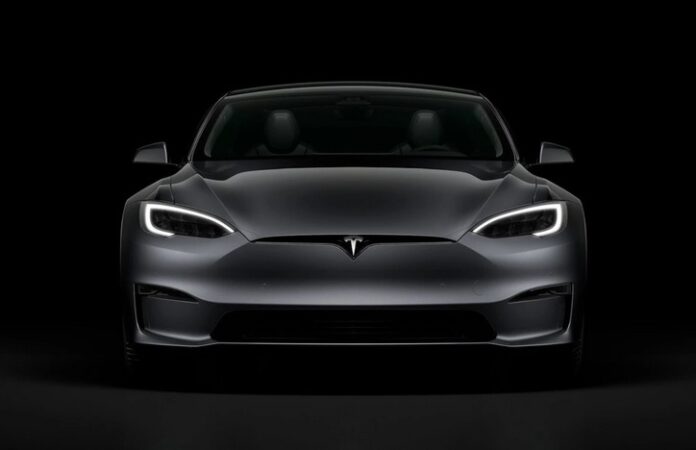The announcement of a TESLA GIGAFACTORY in Mexico set off a competitive scramble among other Mexican states, like a feeding frenzy inside a shark tank. The governors’ offers ranged from crafty proposals to near-comic ones.
VERACRUZ
“Veracruz is the only state with an excess of gas,” quipped Gov. Cuitláhuac García of the Gulf coast state of Veracruz, before quickly adding “gas … for industrial use, for industrial use!”
A late-comer to the race, García had to try harder: He noted Veracruz was home to Mexico’s only nuclear power plant. And he claimed Veracruz had 30% of Mexico’s water, though the National Water Commission puts the state’s share at around 11%. Water, it turns out, is thicker than blood.
MICHOACAN
The governor of the western state of Michoacan wasn’t going to be left out. Gov. Alfredo Ramírez Bedolla quickly posted a mocked-up ad for a Tesla car standing next to a huge, car-sized avocado — Michoacan’s most recognizable product — with the slogan “Michoacan — The Best Choice for Tesla.”
“We have enough water,” Ramírez Bedolla said in a television interview he did between a round of meetings with auto industry figures and international business representatives.
Michoacan also has an intractable problem of drug cartel violence. But similar violence in neighboring Guanajuato state hasn’t stopped seven major international automakers from setting up plants in Guanajuato.
NUEVO LEON
Nuevo Leon Gov. Samuel García had to think fast to avoid being shut out entirely, and came up with a novel strategy.
García reached out to the western state of Jalisco, whose governor, Enrique Alfaro, belongs to the same small Citizen’s Movement party. Together, the two came up with an “alliance” Thursday that would allow trucks from Jalisco preferential use of Nuevo Leon’s border crossing, the same one where a “Tesla” lane appeared last year.
JALISCO
Jalisco has an already healthy foreign tech sector, but most importantly, it has more water than Nuevo Leon.
The two appeared intent on playing nice. “We are two states that do not have to compete and cannibalize each other … cannibalization for investment is a mistake,” Alfaro said.
López Obrador’s focus on water might be more about politics than about droughts, said Gabriela Siller, chief economist at Nuevo Leon-based Banco Base. She said the president appeared to be trying to steer Tesla investment to a state governed by his own Morena party, like Michoacan or Veracruz.
That could be a dangerous game, Siller said.
“Tesla could say it’s not somebody’s toy to be moved around anywhere, and it could decide not to come to Mexico,” she said.
Sam Abuelsamid, a principal research analyst at U.S.-based Guidehouse Insights, said playing one state off against another has been common practice in the U.S.
“You remember a few years back, Amazon talked about building their headquarters, like every state, city in the country was putting in bids, trying to lure Amazon there,” Abuelsamid said.
There are doubts that whatever Musk eventually does announce will be an auto assembly plant. Foreign Relations Secretary Marcelo Ebrard said his understanding is that it won’t be a plant, but rather an “ecosystem” of suppliers.
Musk previously has made promises that don’t come true, or happen years after he says they will. For instance, in 2019 he promised a fleet of fully autonomous robotaxis on the roads sometime in 2020. Nearly three years later, Tesla has yet to sell any autonomous vehicles.
While there has been little talk in Mexico so far of subsidies, many auto companies have gotten significant incentives to build plants in Mexico. That kind of race can be costly.
“It’s questionable whether it’s actually that economically beneficial to localities or providing those subsidies,” said Abuelsamid. “They’re sometimes spending billions of dollars in tax breaks to lure a company in there.”
Musk at times has floated the idea of building a $25,000 electric vehicle that would cost about $20,000 less than the current Model 3, now Tesla’s least-expensive car. Many automakers build lower-cost models in Mexico to save on labor costs and protect profit margins.
A Tesla investment could be part of “near-shoring” by U.S. companies that once manufactured in China but now are leery of logistical and political problems there. That those companies will now turn to Mexico represents the Latin American country’s biggest foreign investment hope.
“The fight among states to attract investments from this nearshoring phenomenon is going to be tough, complicated,” Alfaro said.
As Ramírez Bedolla put it, “wherever Tesla sets up, it is going to be big news in Mexico.”
Source: El Financiero






